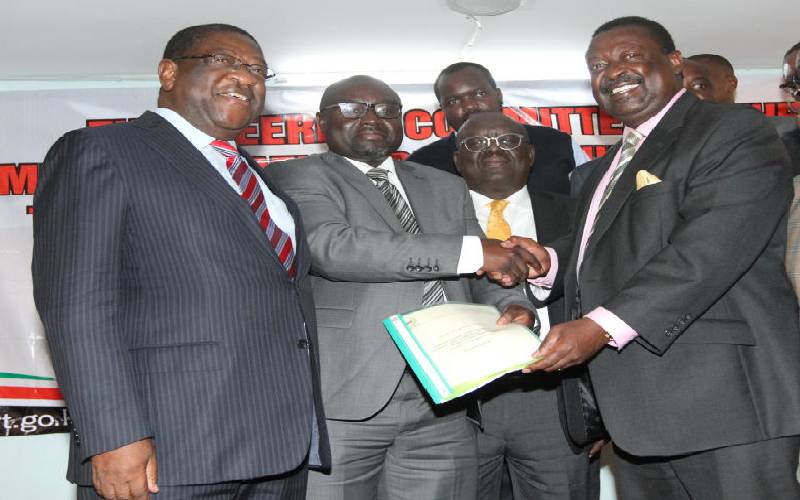ANC leader Musalia Mudavadi (right) presents a document containing his recommendations to the Building Bridges Initiative vice chair Adams Oloo (2nd left) the task force secretary Paul Mwangi (2nd right) and Amos Wako at the KICC, Nairobi. [Elvis Ogina, Standard]
